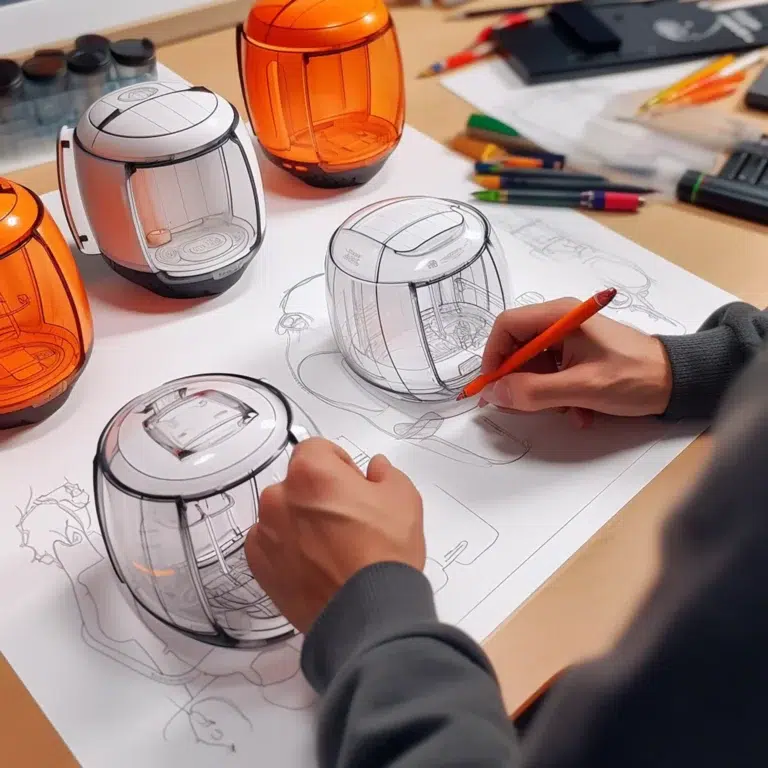We want to introduce you to a corporate startup that arose from one of our hackathons: Ella. We had an interview with Bart Pollentier, project lead of Ella. In one of our older blog posts, we talked about how we identified and selected the right intrapreneur.
First, who or what is Ella? This corporate startup is the result of a one-week hackathon we did at SD Worx, a big corporate specialized in Payroll, HR, Tax & Legal matters. Ella is a digital legal assistant that helps clients with these issues.
By asking Bart about his successes and difficulties, we hope to get you more familiar with the life of an intrapreneur.
- What is your biggest challenge working as an intrapreneur?
The most challenging part was to convince everyone and getting all stakeholders on the same side so they agree with the chosen path of the next steps. It’s important to ooze out all different opinions to continue the project.
- What excites you?
The intrapreneurship itself attracted me the most since you first pilot everything -from the design of the product, stakeholders management, reaction or interviews with clients and different marketing aspects. The scope was much broader than something I had done before. That definitely was a real challenge, but I embraced it because I felt a connection with all aspects of Ella.
- Ever took gut decisions? Learnings?
Absolutely. Sometimes gut decisions are the right ones. Because sometimes you start thinking too much about everything. You just have to make an assumption, draw a line in the sand, stay true to that decision and let the clients challenge that decision.
- When did you realize you wanted to become an intrapreneur?
I got curious when I stumbled upon some posters in our company with motivational quotes that urged me to challenge myself. The combination of project management, entrepreneurship and freedom to launch a project like Ella inspired me to join. I applied for the job of intrapreneur and with the help of Board of Innovation, I pursued into the world of startups. It was an opportunity to get out of my comfort zone and look at SD Worx in a different way.
- You are Ella’s dedicated lead for over six months right now. Is it what you expected?
Yes, certainly. It has been an opportunity to meet and work together with new people I would usually never work with.
- How is it different?
I got a lot more freedom to develop the project and the proof of concept.
- Would you do it again?
Absolutely! I enjoy what I am doing and even though it is hard work, it gives me a lot of energy.
- What’s the current state of the project?
The MVP has been launched, qualitative tests are done, and now we are thinking about different pricing models and a scale-up.
- What makes Ella different from other innovation projects within SD Worx?
The fact that a dedicated lead is being appointed to a project which involves a lot of uncertainty.Our company is ready for a mindset regarding intrapreneurship and corporate startups. Using the lean startup principles is a new way of working and is a lot faster. When I talk to stakeholders, I notice they respond with a lot of energy and enthusiasm.
- How would you explain the lean startup methodology to your colleagues at SD Worx?
The advantage of using the lean startup is that you can build on an actual product with a certain degree of independence, even in your own garage for example. Nevertheless, you need to validate that independent way of working by quickly going to the market and making short iterations. This makes it easier to deal with the existing insecurity issues. Clients respond fast and this counters that feeling of uncertainty. Make sure to test your product or service, pricing and many more to your clients. It feels like we are going forward every day. Feedback is key!
- Lean startup in 3 words?
Speed. Adventure. Clients.
- As an intrapreneur, what are your most significant challenges you have to face with Ella?
It is a real test if you don’t know beforehand what problems you are going to face. You need to solve problems quickly even when you didn’t expect them. Work hard!
- What could help you?
More acceptance and support for the corporate startup philosophy. Listening to the voice of the client is the most important challenge and we need to put our opinions as a company aside. These ideas are meant positive, but the client always has the last word. We need to solve the client’s problem and not the problem we hope the client has.
- What did you already learn during your time working on Ella?
Not only clients’ feedback is important, but also qualitative metrics. I have learned to use these metrics faster and to engage more deeply. You also need to formulate your scope and vision clearly. Once you have the right scope, you need to act quickly. As the saying goes: Kill your darlings. Pivot where necessary in order to shift, deepen and broaden the scope.
- What advice would you give to other intrapreneurs?
The challenges on your path might look haunting and sometimes tedious, yet the work is motivating and rewarding.Everything that slows me down or drains energy I leave aside. I keep asking myself: how will we get to our goal the quickest? Though some obstacles need to be taken, the intentions of others are never meant to be harmful, they might just reason from another point of view. Even when the information they provide isn’t that great, it’s good to keep track of it.
- How did you create financial projections for your product?
By measuring various sources of data. At this moment a quantitative pricing study is being implemented to test our pricing model. We identified 12 ‘buyer personas’ which we gave access to all features of Ella during two weeks to one month. After this period, we’ve sent an external consultant to talk to them about their experiences and to verify if all features have been tested. We also performed a calling action with 100 clients where we showed a problem-solution fit and where we measured their reactions when we presented the existence of Ella. On their response rate we made projections towards what the next steps could be and what the possible reaction of our clients would (probably) be.
- How did you embrace having no structure or process when starting off?
For me it was challenging, because it was a white space in which we would start. We had defined our goal and the fact that there was such an amount of uncertainty made it possible to create (with teamwork and some sparring with different stakeholders) something from the drawing board without the usual thresholds. We could define an idea and make a proof of concept rather swiftly.
- What have you done to test the uncertainty of your offering?
We always stay in beta. At this moment we are live with 50K users and for the clients of our payroll, Ella is free till the end of the year. We measure their feedback and what we were assuming is being confirmed by the inquiries they take.
- Any companies or services you’ve used as an example for your own development?
Yes, there were a lot of businesses we’ve studied with the help of Board of Innovation, especially on their pricing model. On the other hand we noticed some nearby startups like Intuo and Teamleader. They have entirely different offerings than Ella, but learning about their philosophy was inspiring for us.
👋🏼 Meet Ella
Ella introduction video (in Dutch).


